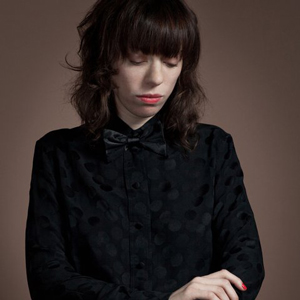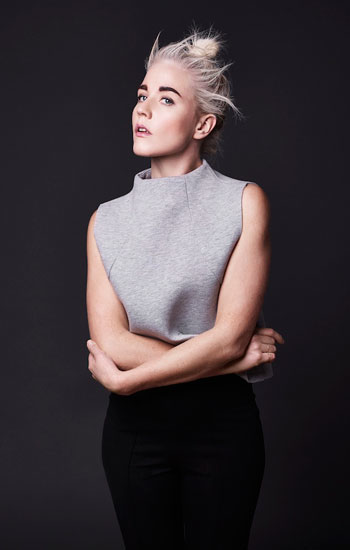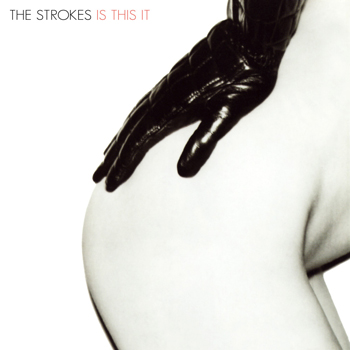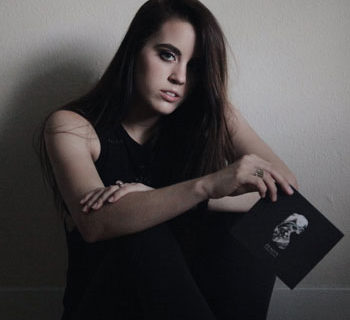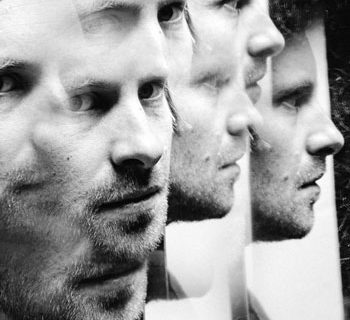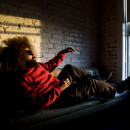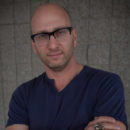7 Questions with Vorhees
"Vorhees" is the moniker of New York audio engineer Dana Wachs, who also happens to be among the more intelligent of songwriters and a creator of haunting experimental soundscapes. Her EP, Black Horse Pike, released in February 2017, is the soundtrack to the mythical journey of a gifted teenage rebel, complete with fast cars, twilight dreamscapes, and unanswerable questions.
Last month Dana Wachs took the time to tell Rawckus about the new EP, the most validating performing experience of her career, and the artists who've inspired her to create "fiercely and freely."
Rawckus : Tell us about the most mesmerizing musical experience of your life.
Dana Wachs: I can tell you, it definitely was not writing or recording, which, by force of lifestyle, occurs in whatever brief moments I can find between tours. Performing requires my utmost focus, and by the very virtue of being present in the moment, it's difficult to "get lost"–though at times I do close my eyes. Listening, whether to recordings or live performances, would come the closest, though live performance has a slight edge for me in the mesmerizing department.
Some qualifiers might be every night as a child at the Philadelphia Orchestra conducted by Riccardo Muti, Miles Davis at the Mellon Jazz Festival in 1991, The Dirty Three and Sonic Youth in 1995, Daft Punk in 2006, Bjork in Nîmes France in 2007, every ATP festival set I attended between 2004 and 2014, and listening to Ravel's Boléro for the first time in the 6th grade.
Why did you choose the name "Vorhees," and what does it mean?
DW: "Vorhees" is derived from the name of the town in South Jersey, not too far from Philadelphia, where I grew up. Its proper spelling is "Voorhees," as it was settled by the Dutch.
I originally began this music project exploring my memory of locales from my childhood, which range from Philadelphia, through my hometown, through the haunted lanes of the Pine Barrens, to shore points such as Brigantine, and so naming the project after the area seemed honest enough.
Did anything funny or bizarre happen to you while performing the songs from Black Horse Pike?
DW: I remember my microphone picking up the voice of my friend from the audience, who shouted, "I love you Dana!" This was recorded by my loop pedal and repeated throughout the rest of the song, every four measures. It was possibly the most validating set I've ever played.
What's the story behind the title track?
DW: "Black Horse Pike" is primarily autobiographical, but it's also an allegory of what being a lower middle class teenage outsider was like before the Internet. For me, it was scrambling in an attempt to define yourself and yearning for acceptance, perhaps by driving random kids around the state looking for anything to do.
Do you find it easy to practice a profession (audio engineer) still largely seen as a masculine domain?
DW: It's something that comes up occasionally still, and when it does it usually interferes with the job I must accomplish. Therefore, no, it's not easy, and people need to get over the fact that women sound engineers exist.
Are there any books, films, or albums that have deeply influenced your development as an artist?
DW: I can't say for sure if any of the media I've turned to has influenced me directly as far as my output, but there have been some figures and pieces that have encouraged me to think differently about process.
Brian Eno, Alice Coltrane, Patti Smith, Robert Altman, William Blake, Haruki Murakami, and Delia Derbyshire have all made me question whether I was going into my own work as fiercely and freely as possible.
What are you working on now, and what's on the horizon?
DW: I'm currently composing a score for a new dance performance by the choreographer Heather Kravas, to be debuted in Seattle late March. At the same time I'm editing ideas, song sketches, and lyrics into what will be a full length LP released on the Brooklyn based Styles Upon Styles [label].


